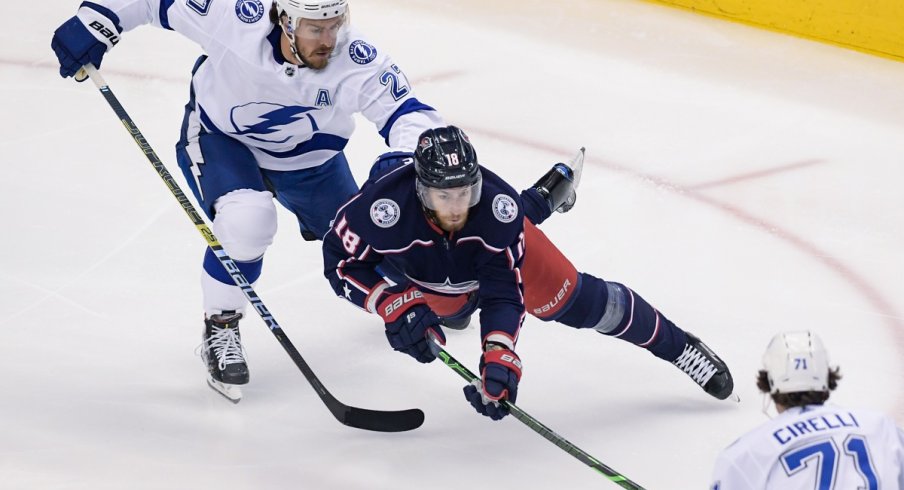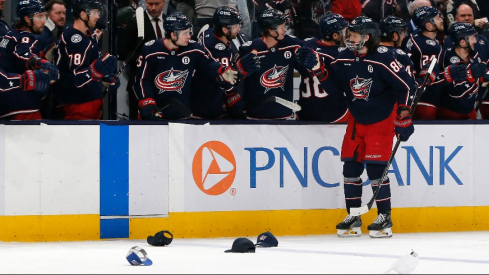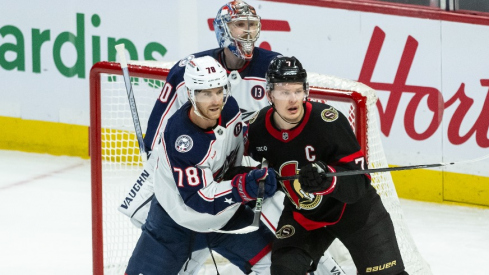To say that the Columbus Blue Jackets will become familiar foes with their Central Division opponents in 2020-21 is an understatement.
The Blue Jackets will play exclusively against other teams in their division in the upcoming 56-game season. That's right, the Blue Jackets will play each of their Central Division foes eight times in 2021. That means, among other things, 16 games – nearly one-third of the regular season – against the Stanley Cup champion Tampa Bay Lightning and Stanley Cup runner-up Dallas Stars. On the other hand, the lowly Detroit Red Wings (who improved since last season) and are expected to finish in the basement of the NHL standings again in 2021 could help even things out a bit.
#CBJ are back in the Central Division for the 2020-21 season. Theyll play other division opponents eight times each in a 56-game regular season. Top four teams in each division make the Stanley Cup playoffs. pic.twitter.com/c5V1zeOLr6
— Aaron Portzline (@Aportzline) December 20, 2020
Rounding out the Central Division are the Nashville Predators, Chicago Blackhawks, Carolina Panthers, and Florida Panthers.
Got some new roomies this year pic.twitter.com/DEGK5FagCw
— Columbus Blue Jackets (@BlueJacketsNHL) December 22, 2020
Also of note is this upcoming season's changed postseason format, which will feature only the top four teams from each division, thus eliminating the Wild Card. In this format, the top seed will play the fourth seed while the second and third seed square off. The winner of each division's mini-tournament will play for their respective conference championship and ultimately chance to compete for the Stanley Cup.
All that is to say that the first time in which the Blue Jackets could theoretically play any team outside of the Central Division would be in the Eastern Conference Finals.
What may the repetition of the same opponent suggest for the Blue Jackets? In The Athletic's Aaron Portzline recent interview with John Tortorella, the head coach mentioned the potential for fireworks – or a dud – in playing the same teams repeatedly.
I’m anxious to see … how is it going to look having the same team for two or three games? What happens in the game? Does it bring in that type of intensity or does it go the other way, where you get bored and the players get bored? We’ve never been on this bridge. I’m anxious to see how it plays out, I really am.
Tortorella was resolute that seeing the same teams with such frequency would lead to less opposition-specific coaching, not more.
"We don’t show a clip of the other team other than on special teams, and even more so now," he said. "They’re gonna know us, and we’re gonna know them."
And while none of us should take Tortorella entirely at his word (you really think they don't talk at all about the opposition's tendencies/personnel/tactics?), it's an interesting point. These teams will know everything about one another, so how much coaching is really necessary? On the other hand, a resourceful team may be able to use the abundance of information and focus on a smaller group of opponents to better exploit the opposition's tactics on the second half of a back-to-back, for example.
But what about the games themselves? In a series-style schedule, in which the Blue Jackets will face every team at least twice before moving on to a new opponent, the familiarity/proximity to consecutive games could lead to more passionate hockey. Not to disparage the typical regular season, but it's not a stretch to say that a Tuesday night game at Nationwide Arena against the Florida Panthers could have more fireworks if the teams played on Monday, as well.
We've already speculated that a condensed schedule serves the Blue Jackets well, as they'll be able to lean on a fresh Elvis Merzlikins or Joonas Korpisalo. But outside of the crease, it will be fascinating to see whether this team, which lacks offensive star-power but is notoriously difficult to play against, will benefit from such an arrangement. Will it be a more physical brand of hockey across the NHL? Will fighting tick back up?
Count me as a fan of the series-style scheduling. When the world/NHL returns to 'normal', it would make for more compelling hockey (and also be a cost-saving measure) to play the same team several times before departing, a la baseball. And while not much good has come from 2020, perhaps this is an exception.


